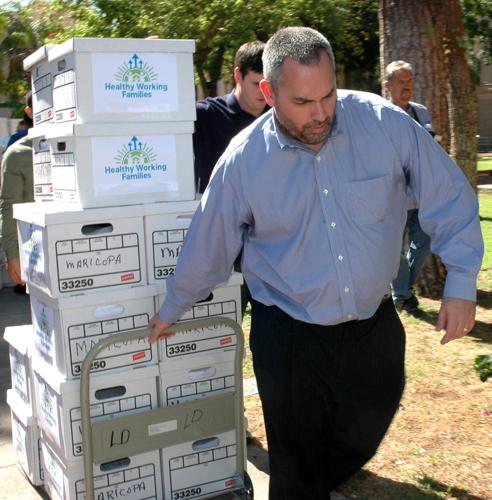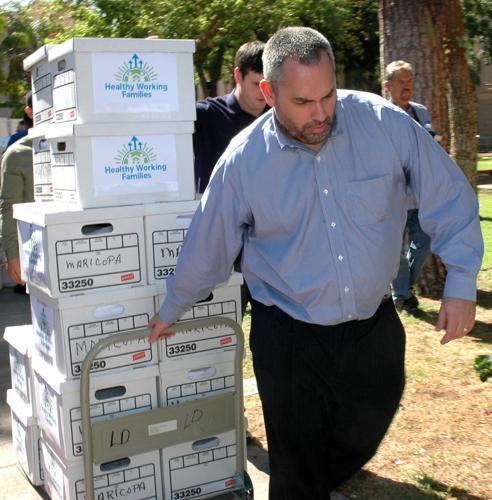PHOENIX — The campaign is on over whether employers will be required to give an estimated 770,000 Arizonans a raise next year.
Backers of boosting the state’s minimum wage, in steps, to $12 an hour by 2020 turned in petitions Thursday which they say contain more than 270,000 signatures. That’s far more than the 150,000 that now need to be verified as valid to put the measure before voters in November.
If approved, the measure would immediately increase the state minimum wage to $10 an hour. The minimum now in Arizona is $8.05 an hour.
Tempe City Councilwoman Lauren Kuby said businesses clearly can survive paying more than the minimum. She cited Tempe’s Changing Hands Bookstore.
“Their competition is intense,” she said, as they have to fight for customers with online giants like Amazon. “And, somehow, they find a way to not just give workers sick days, a higher minimum wage, paid time off, they give vacation days. And, lo and behold, they don’t have a problem with retaining workers.”
But Kuby said the initiative is about more than cash. She said about 45 percent of people employed in Tempe, as one example, are at jobs where there is no paid time off, even for sick leave.
This measure, if approved, would require companies to provide at least three days of paid sick time a year to employees who work at least 30 hours a week, with five days for companies with more than 15 workers. Kuby said that benefits everyone.
“After all, who really wants to have food served by a worker that’s sick,” she said. “That’s not good for the public It’s not good for business.”
Even as the petitions were being filed, the Arizona Chamber of Commerce and Industry fired off the first salvo.
“Businesses faced with the extreme hike in costs and the additional workplace mandates called for by the initiative will be left only with bad options,” said chamber president Glenn Hamer in a prepared statement. Those options, he said, range from laying off workers and raising prices to investing in automation “that will make employees unnecessary.”
And some, he said, might go out of business.
But Tomas Robles, the initiative’s deputy campaign manager, said there’s no basis for the dire predictions.
“In fact, there’s research that increasing minimum wage and adding earned sick time reduces costs and other forms of turnover, like employee training,” said Robles. “Employees will stick to companies because they feel like they’re being treated with respect.”
Robles said Bureau of Labor Statistics figures show that about 770,000 Arizonans — about a quarter of the workforce — are making less than $10 an hour and would get an immediate boost.
That doesn’t count those who already may be earning that figure or slightly more, people with some experience: If employers have to start workers at $10, then they would need to pay more to retain those with training.
All that could drive up the median Arizona wage, the number at which half of those employed are making more and half are working less. The most recent BLS figures put that at $16.67 an hour.
By contrast, the median federal wage is $17.40 an hour, or about $1,500 a year more.
Separately, Robles estimates that 934,000 Arizonans are in jobs where employers provide no paid sick leave.
Like current law, the proposal includes a $3 “tip credit,” meaning employers could pay $3 an hour less to their workers who get tips. They would have to show that the workers actually earned at least $3 an hour in tips.





